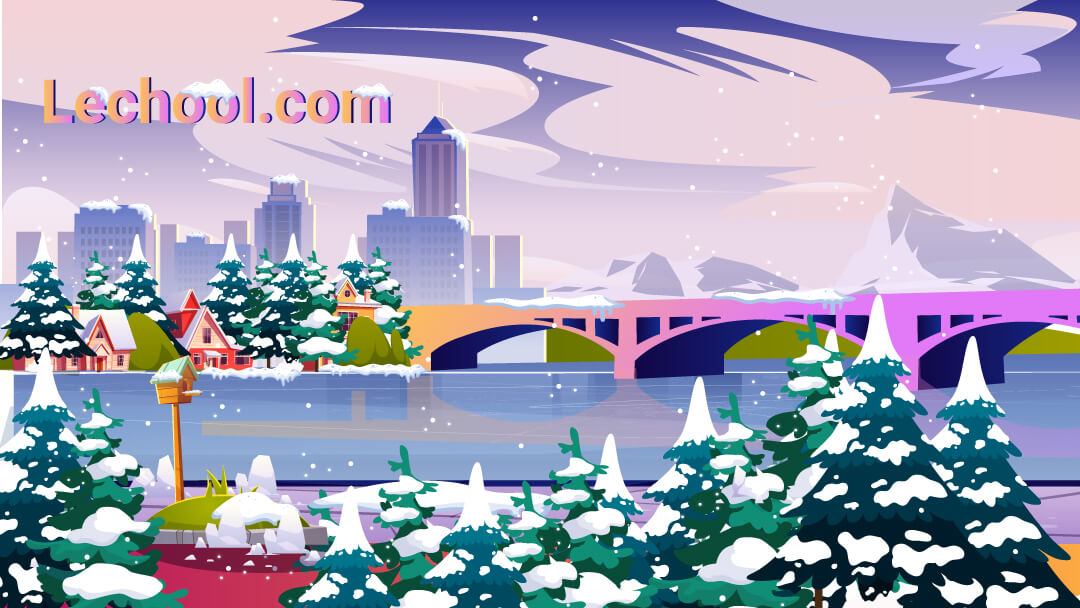Saskatchewan is a landlocked province with large distances to moderating bodies of water. As a result, its climate is remarkably continental, rendering severe winters throughout the province.
Southern areas have very warm or hot summers.
In winter, temperatures below −45 °C are possible even in the south during extreme cold snaps. Summers can get very hot, sometimes above 38 °C (100 °F) during the day, and with humidity decreasing from northeast to southwest, no wonder Saskatchewan receives more hours of sunshine than any other Canadian province.
In 1803, the Louisiana Purchase transferred from France to the United States part of Alberta and Saskatchewan. In 1818, the U.S. ceded the area to Britain.
Saskatchewan's official flag was adopted in 1969.
It emphasizes the provincial shield of arms along with the floral emblem, the western red lily. The flag's upper half is green, representing Saskatchewan's northern forests; the lower half is gold, symbolizing the southern grain areas.
Saskatchewan's entire area is almost 652,000 square kilometres which alas is a bit smaller than Texas, which is about 696,000 square kilometres.
Saskatchewan is bordered on the west by Alberta, on the north by the Northwest Territories, on the east by Manitoba, to the northeast by Nunavut, and on the south by the U.S. states of Montana and North Dakota.
Nearly 10% of Saskatchewan's total area is freshwater composed mostly of rivers, reservoirs, and the province's 100,000 lakes.
The Saskatchewan Ministry of Education administers publicly funded elementary and secondary schools in the province.
Public elementary and secondary schools either operate as secular or as separate schools. Nearly all school divisions, except one, operate as an English first language school board.
The Division scolaire francophone No. 310 is the unique school division that operates French first language schools.
With more sunlight per year than any other Canadian city, Saskatoon comes alive in summer, with celebrations like jazz, theater, and folk festivals held from June to August.
New to town: MoSoFest, which prides itself on being "Saskatoon's most diverse festival," and this year featured 60 bands in seven venues.
During winter, kick sledding and cross-country skiing are popular in Meewasin.
Saskatchewan's economy was primarily associated with agriculture, with wheat being the precious symbol on the province's flag.
Increasing diversification has resulted in agriculture, forestry, fishing, and hunting, making up 8.9% of the province's GDP in 2018



